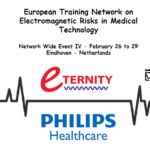Three years ago, I started a new challenge in my career. To embark on an European research project was not something that was part of my plans throughout my academic studies. Being someone who likes to work on a project hands-on, I’ve always preferred practical activities over theoretical topics and for that reason, I assumed…
Enhancing Electromagnetic Disturbance Detection with Frequency-Selective SDR Technology
IntroductionElectromagnetic disturbances (EMDs) have become an increasingly prevalent concern, particularly with the proliferation of electronic devices in our everyday lives. This blog delves into the findings of a recent research paper that assesses a cutting-edge, frequency-selective EMD detector using software-defined radio (SDR) technology, aimed at improving the accuracy and response time of EMD detection systems.…
Risk-Resilience-Based EMC Compliance Patterns for Medical Devices
During the Safety Critical Systems Symposium SSS’24 in Bristol, UK, our research paper within ITN Eternity titled ‘Ensuring Safety and Effectiveness of Medical Devices in the Presence of Electromagnetic Disturbances through Unified EMC Assurance: A Compliance Pattern’ was presented. ESR14 would like to acknowledge Mike Parsons, Alex King, and Brian Jepson from the Safety Critical…
Exploring My Path as a MSCA Early-Stage Researcher
Embarking on my journey as a Marie Skłodowska-Curie Actions (MSCA) Early Stage Researcher has been an enlightening experience, diving into the world of Electromagnetic Compatibility (EMC) research while being presented with remarkable opportunities for growth, both professionally and personally. Through this blog, I aim to shed light on the enriching aspects of my MSCA journey,…
ETERNITY – Network Wide Event IV
🔬🩺 Exciting Research Event Alert! Join Us Next Week! 🌐 Mark your calendars because next week, we’re diving into groundbreaking research at the intersection of EMC and Medical Devices! 📊🩺 Don’t miss out on this unique opportunity to explore the fascinating world where technology meets healthcare. What’s on the Agenda: 💡 Why Attend? Whether you’re…
Once Upon a Time in ETERNITY
How does it feel to be a Marie Curie fellow in ETERNITY?! We are almost the very last Marie Curie Early Stage Researchers (ESR) in ITN 2020. We had the opportunity of being acknowledged as research assistants. It is a prestigious position that brought 14 ESRs together to work on the same goal in different…
Impact of impulsive interference on wireless communication links
The realm of wireless communications is progressively complex and densely populated. The expanding potential for signal interference among various sources is becoming increasingly apparent. Impulsive interference is a type of electromagnetic disturbance that can have a substantial risk of affecting the signal quality and functionality of wireless communication links. Impulsive interference in communication systems is…
A Systems Thinking Approach to Risk-Based EMC
In recent years, ensuring effective electromagnetic coexistence between devices while maintaining safety and functionality has become progressively more challenging. This challenge is especially prominent within safety-critical applications, where any malfunction could result in severe consequences for both individuals and the environment. Rule-based approach vs Risk-based approachThe traditional ‘rule-based’ approach for managing Electromagnetic Interference (EMI) relies…
Finding “50 & More Shades of Grey”, Unveiling EMC in Healthcare
A Day of Hope and Healing Discovery at MST Hospital In a world filled with hustle and bustle, we often overlook the extraordinary places where everyday heroes work tirelessly to make a difference. Hospitals are one such place, where the juxtaposition of vulnerability and resilience creates an atmosphere unlike any other. Real-life clinical environments are…
ETERNITY in the EMC Europe 2023
We are very happy to participate in the EMC Europe 2023! All the effort and dedication of the past years of research has brought awesome results for most of the ETERNITY researchers. We will have 4 special sessions and more than 10 papers to present at the conference this year. Such an amazing achievement for…




